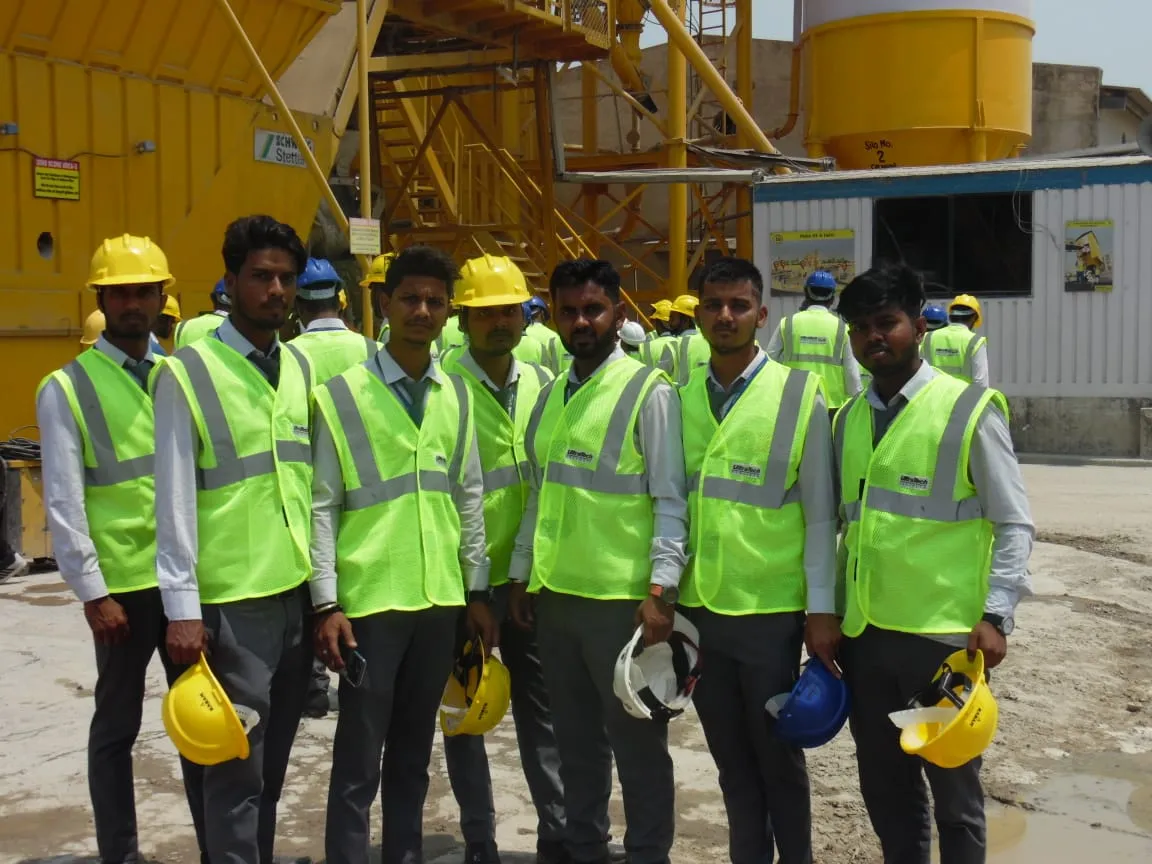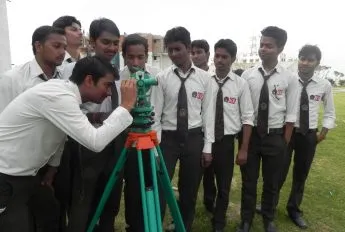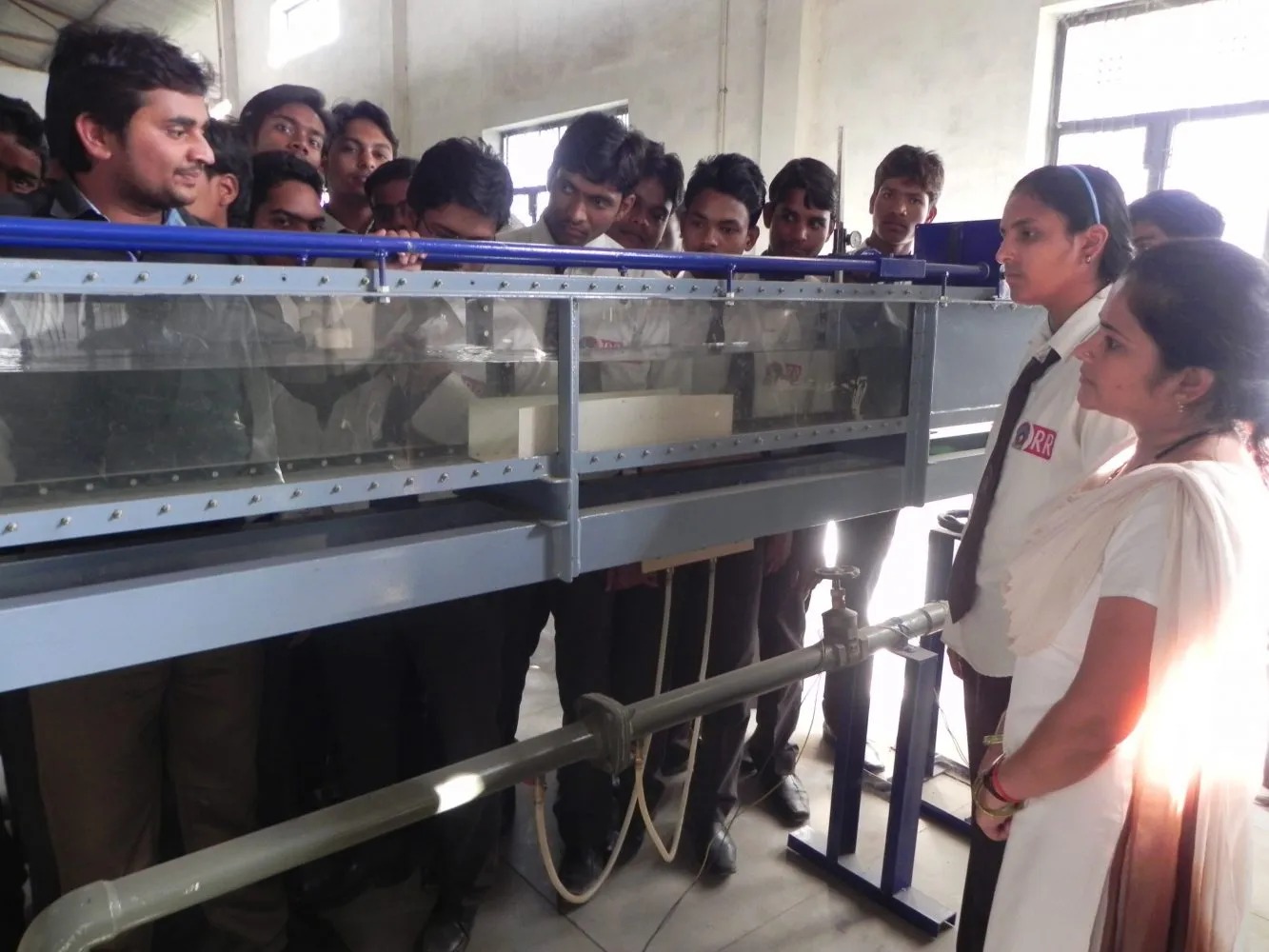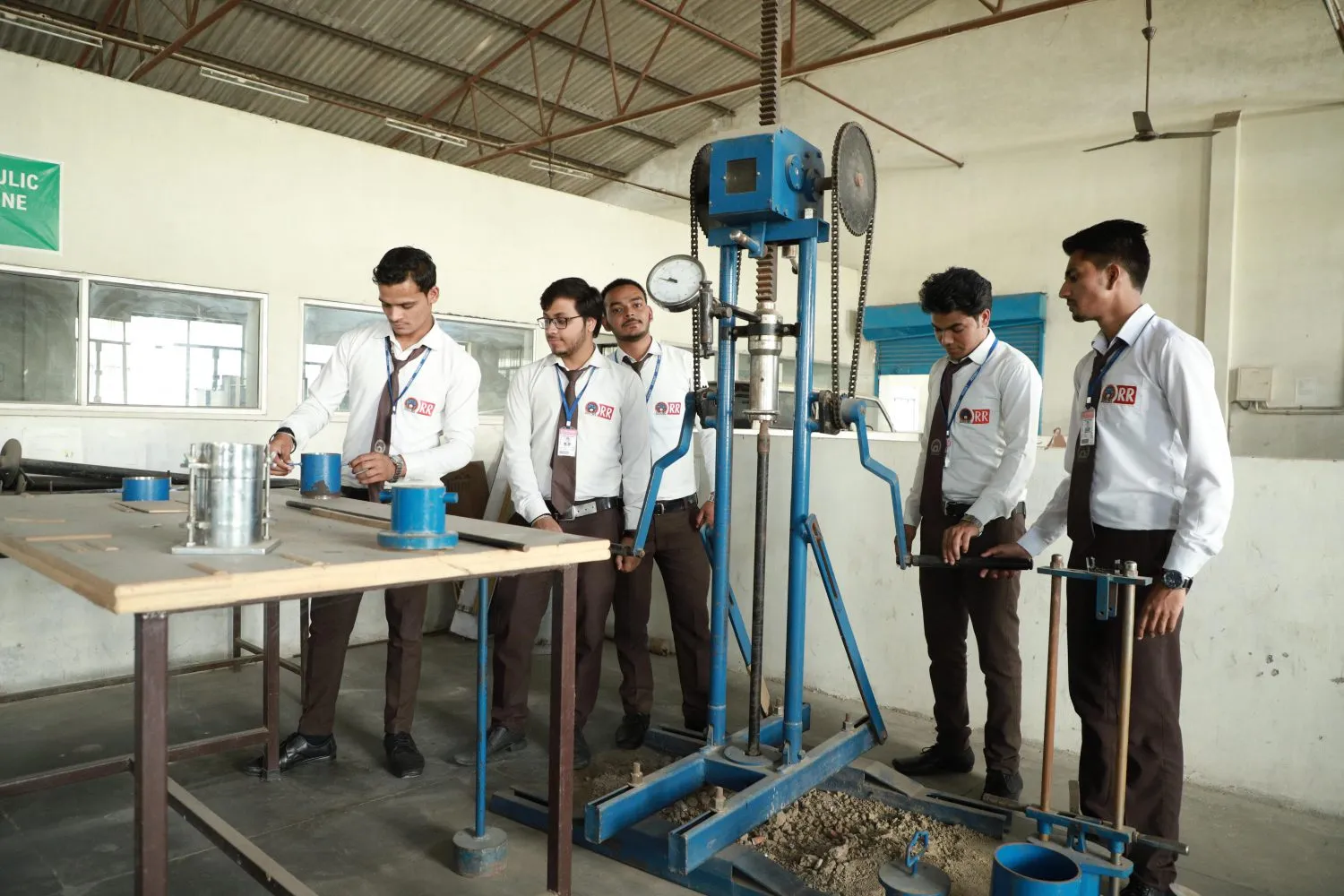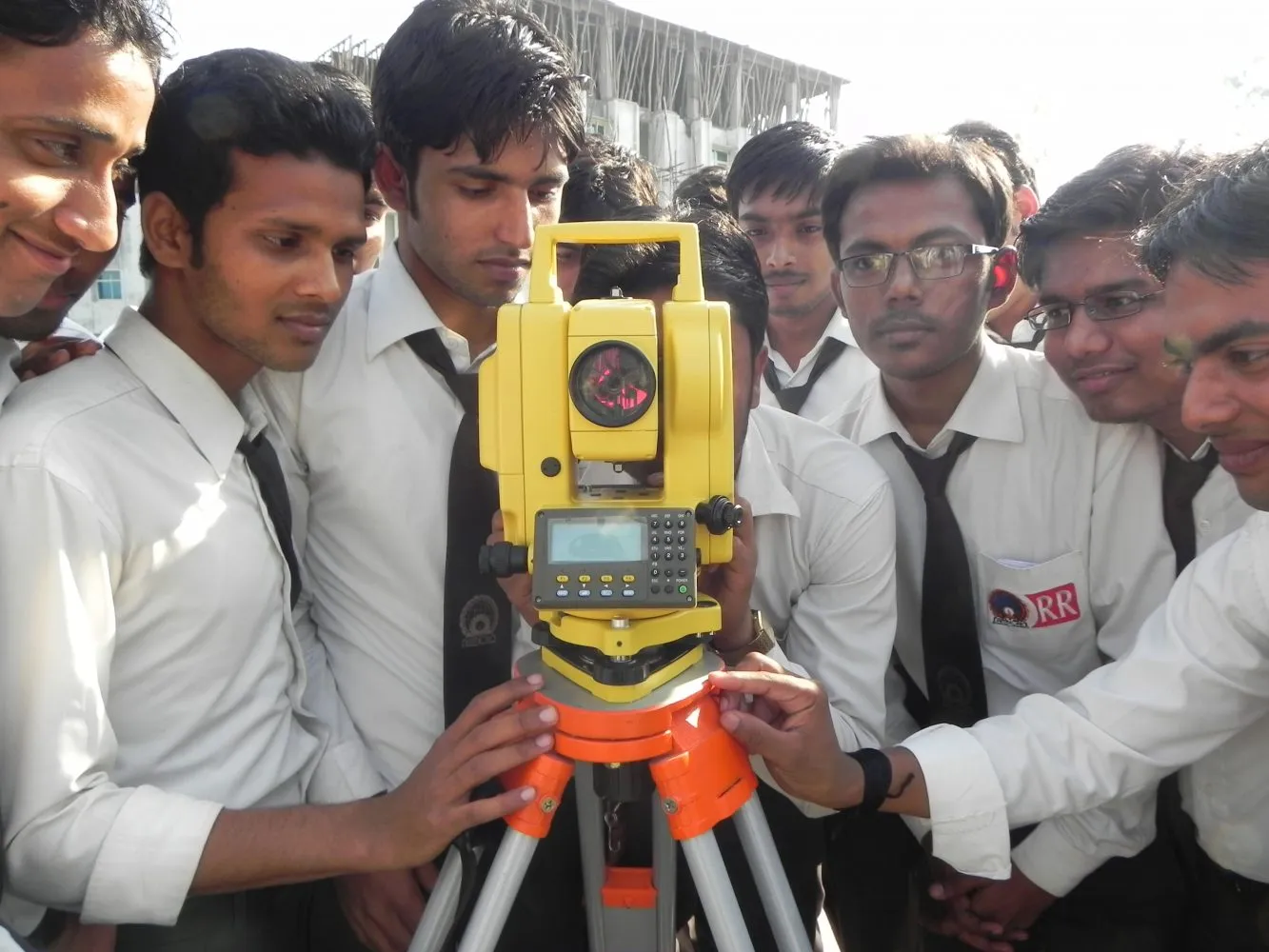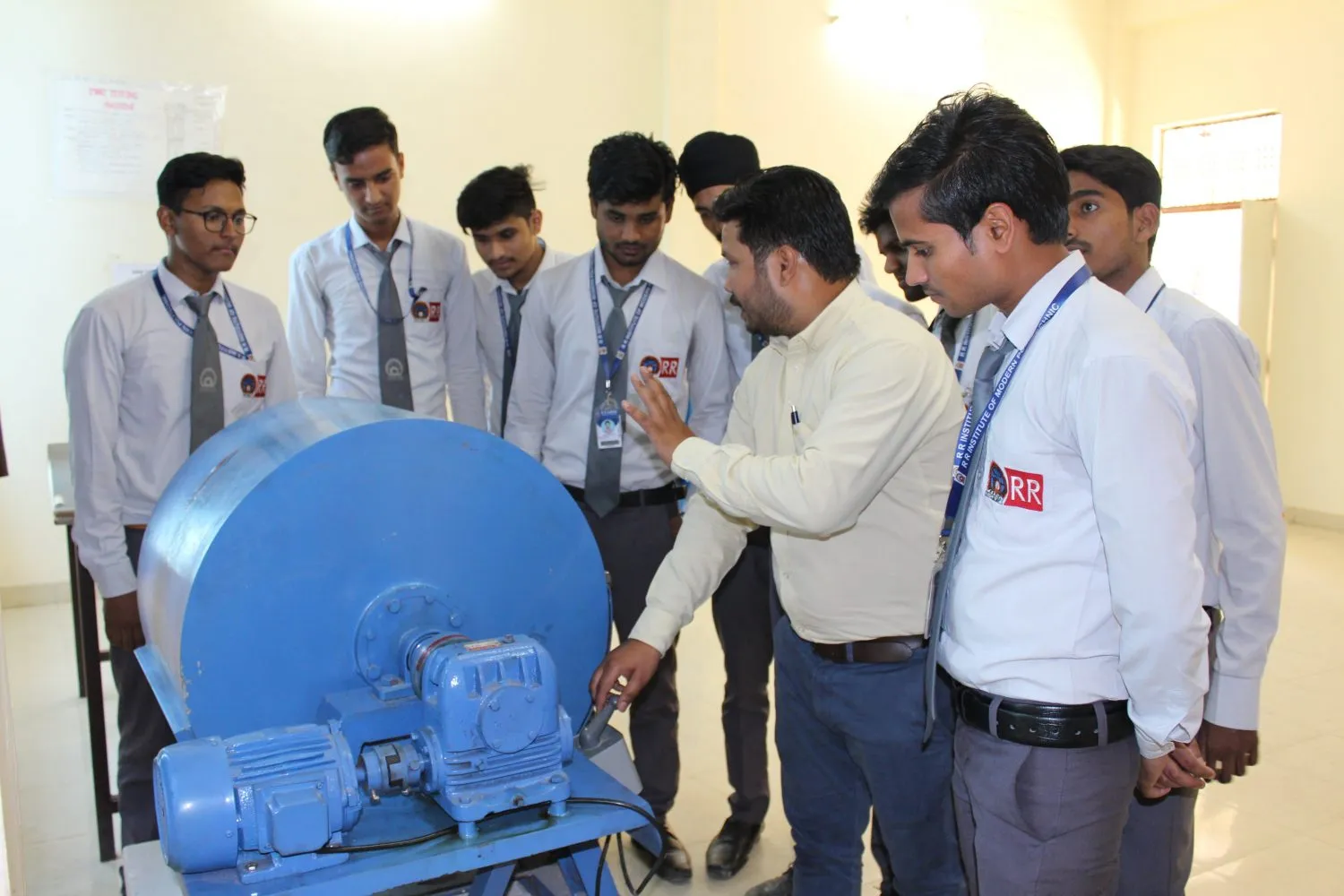ivil Engineering is one of the broadest and oldest of the engineering disciplines, extending across many technical specialties. Civil Engineers plan, design, and supervise the construction of facilities essential to modern life like space satellites and launching facilities, offshore structures, bridges, buildings, tunnels, highways, transit systems, dams, airports, harbors, water supply system,s and wastewater treatment plants.
Vision
To excel in area of civil engineering with sound technical and multidisciplinary approach to produce proficient professionals with enrichment of Indian values and ethics.
Mission
- To provide congenial learning environment for excellence in delivering knowledge and assessment to ensure holistic development.
- To prepare and motivate students for employment, entrepreneurship, higher education and research for the betterment of the society as well as the nation.
- To impart Indian values and ethics with an ambience to nourish professional excellence which will produce globally accepted Civil Engineers.
Program Educational Objectives (PEOs)
- Graduate will apply technical expertise to identify and resolve complex Civil Engineering problems with the help of modern engineering tools.
- Graduate will be able to evolve cost effective solutions for sustainable environment with deep insight into societal and ecological issues by adhering to professionalism.
- Graduate will able to flourish professional ethics and leadership with communication skill facilitating to work in a multidisciplinary environment.
Program Outcome (POs)
Apply the knowledge of mathematics, science, engineering fundamentals, and an engineering specialization to the solution of complex engineering problems.
Identify, formulate, review research literature, and analyse complex engineering problems reaching substantiated conclusions using first principles of mathematics, natural sciences, and engineering sciences.
Design solutions for complex engineering problems and design system components or processes that meet the specified needs with appropriate consideration for the public health and safety, and the cultural, societal, and environmental considerations.
Use research-based knowledge and research methods including design of experiments, analysis and interpretation of data, and synthesis of the information to provide valid conclusions.
Create, select, and apply appropriate techniques, resources, and modern engineering and IT tools including prediction and modelling to complex engineering activities with an understanding of the limitations.
Apply reasoning informed by the contextual knowledge to assess societal, health, safety, legal and cultural issues and the consequent responsibilities relevant to the professional engineering practice.
Understand the impact of the professional engineering solutions in societal and environmental contexts, and demonstrate the knowledge of, and need for sustainable development.
Apply ethical principles and commit to professional ethics and responsibilities and norms of the engineering practice.
Function effectively as an individual, and as a member or leader in diverse teams, and in multidisciplinary settings.
Communicate effectively on complex engineering activities with the engineering community and with society at large, such as, being able to comprehend and write effective reports and design documentation, make effective presentations, and give and receive clear instructions.
Demonstrate knowledge and understanding of the engineering and management principles and apply these to one’s own work, as a member and leader in a team, to manage projects and in multidisciplinary environments.
Recognize the need for, and have the preparation and ability to engage in independent and life-long learning in the broadest context of technological change.
PROGRAM SPECIFIC OUTCOME (PSOs)
- The ability to survey, plan and design various sustainable and smart infrastructures with the help of modern tools and construction techniques.
- The ability to be proficient in applied sciences, mathematics and in core areas of Civil Engineering like structural, water resources and environmental engineering.
FACULTY OF Civil Engineering

SAMRENDRA SINGH
HOD (M.Tech.)

KESHAV MISHRA
ASST PROFESSOR (M.Tech.)

SHIVANSHU SINGH
ASST PROFESSOR (M.Tech.)

RAMENDRA KUMAR SINGH
ASST PROFESSOR (M.Tech.)

BALRAM YADAV
ASST PROFESSOR (M.Tech.)

SATISH KUMAR
ASST PROFESSOR (M.Tech.)

SYED BUSTAN FATIMA WARSI
ASST PROFESSOR (M.Tech.)

PRASHANT MANI TRIPATHI
ASST PROFESSOR (M.Tech.)

RAVI KUMAR
ASST PROFESSOR (M.Tech.)

HIMANSHU SINGH
ASST PROFESSOR (M.Tech.)

SUMAN GUPTA
ASST PROFESSOR (M.Tech.)

AISHWARYA SHRIVASTAVA
ASST PROFESSOR (M.Tech.)

SAUMYA YADAV
ASST PROFESSOR (M.Tech.)

ANKIT OJHA
ASST PROFESSOR (M.Tech.)

MANJEET SINGH
ASST PROFESSOR (M.Tech.)

AJAY KUMAR
ASST PROFESSOR (M.Tech.)

SAJJAD SHABBIR
ASST PROFESSOR (M.Tech.)

SHUBHAM RAJ
ASST PROFESSOR (M.Tech.)

CHANDRA KUMAR
ASST PROFESSOR (M.Tech.)

SUSHANT KUMAR
ASST PROFESSOR (M.Tech.)

MAHENDRA PRATAP
ASST PROFESSOR (M.Tech.)
Duties of a Civil Engineer
- Civil engineers are involved in the design and building of highways, bridges and tunnels, schools, hospitals, airports and other buildings, sewage systems and water treatment facilities.
- Most structures, large and small, require the help of a civil engineer whether in the designing, planning or managing of the project.
- Civil engineers also help to preserve our environment by assisting in the cleaning up of existing pollution and planning ways to reduce future pollution of our air, land and water
Touted among the top civil engineering college in Lucknow, the department of Civil Engineering at RRIMT has a well-qualified faculty and enriched laboratories keeping in mind the contemporary developments. The students are given opportunities to become conversant with software like STAA, D-Pro, PULSE, ME Scope Model Software, FLAC, UNIPAC etc. for analysis of practical civil engineering problems. The department also organizes various short-term training programs for its students besides several seminars/conferences and awareness programs on the themes of emerging fields.
The laboratories established by the department are as follows :
- Fluid Mechanics Lab
- Structural Analysis Lab
- Building Materials Lab
- Environmental Engineering Lab
- Hydraulics & Hydraulic Machines Lab
- Surveying Lab
- Geo-Informatics Lab
- Geo-Technical Engineering Lab
- Geo-Technical Engineering Lab
- Transportation Lab
